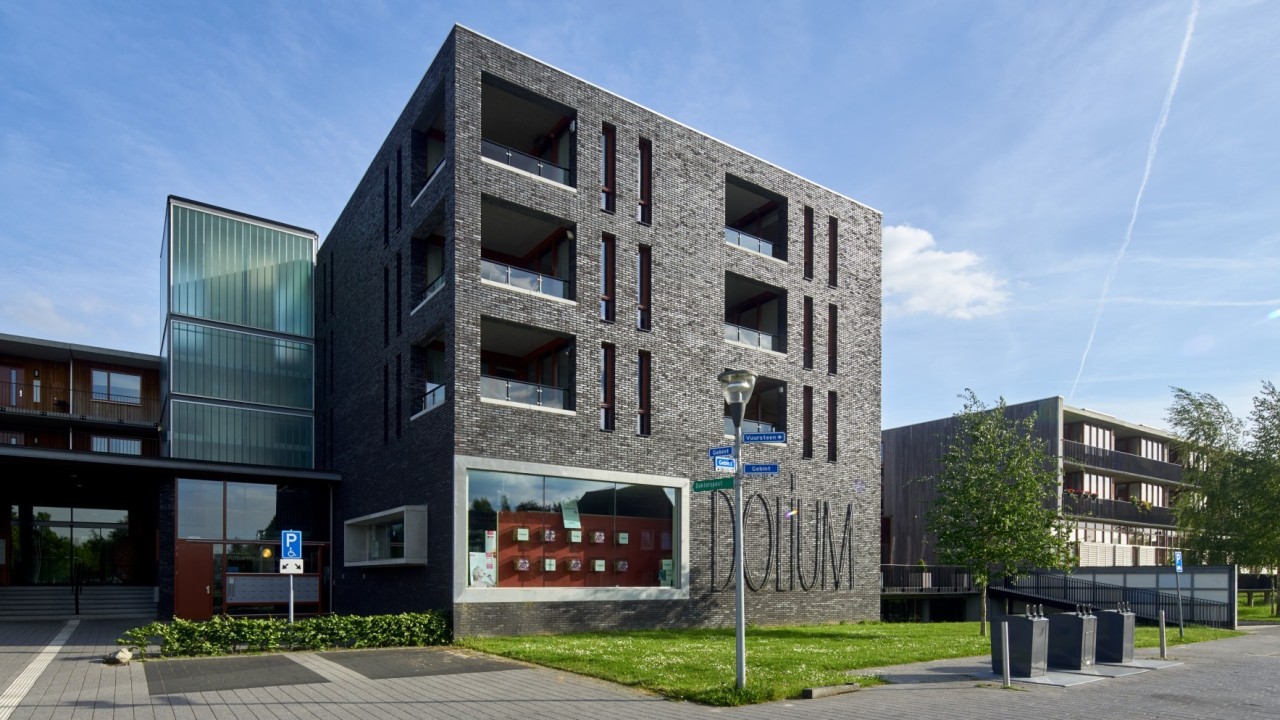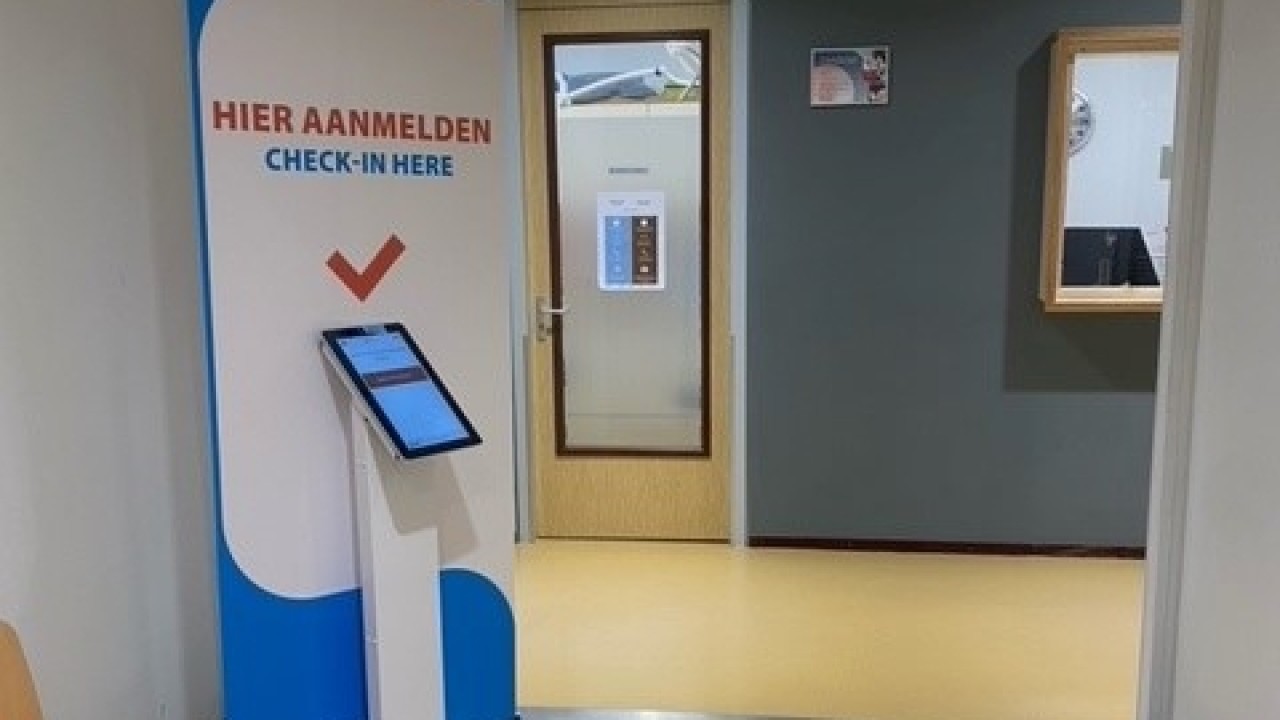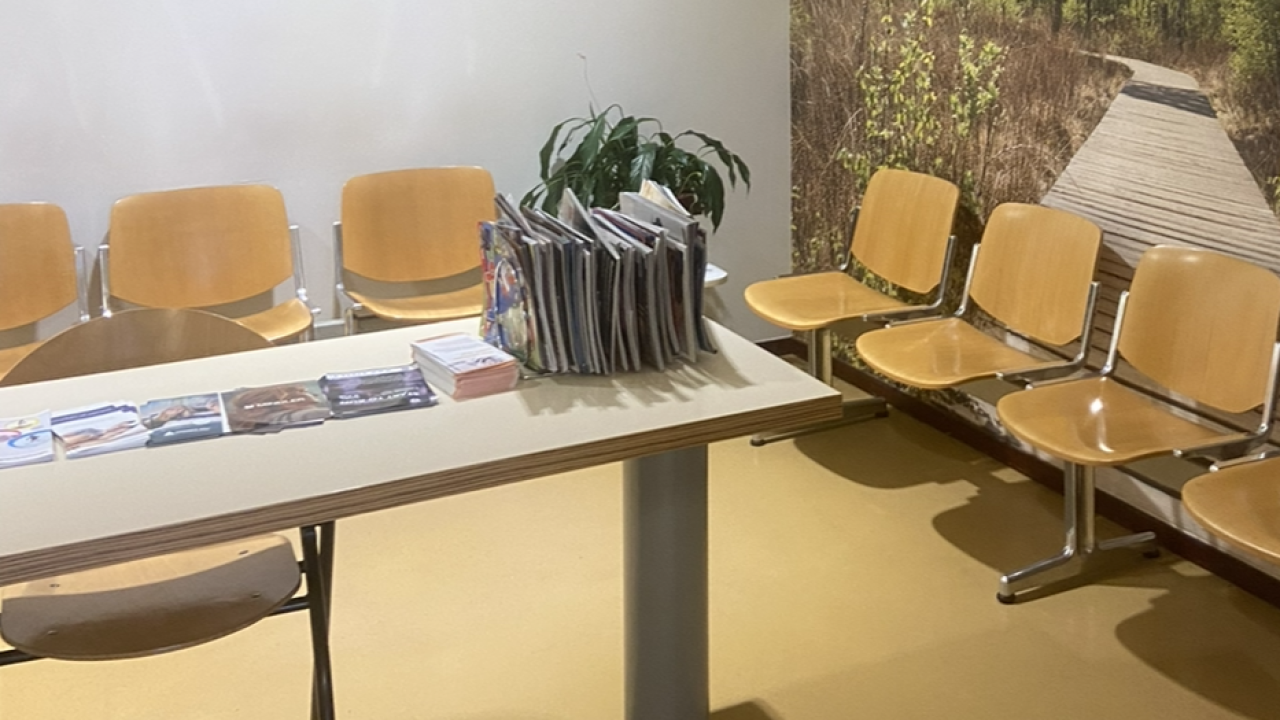GP practice Dolium
Registration kiosk at GP's practice reduces workload for assistants
Dolium General Practice is a medical practice with 7 general practitioners located in the village of Eersel, in the Brabant region just south of Eindhoven. The patient population consists of individuals with an average to high educational level. The practice features a self-check-in kiosk integrated with Medicom by PharmaPartners.
Initially, Dolium General Practice sought a method to alleviate the workload for its assistants. Caroline, the practice manager, explains: "We typically have two assistants at the front desk primarily answering phones. When a patient arrived to check-in, the assistant had to close the open programs on her computer before proceeding with the check-in process. This was cumbersome, prompting us to seek a more efficient solution." Additionally, Caroline highlights the challenge of managing workload during assistant absences: "Tasks still need to be completed when an assistant is absent. We were also seeking a solution to manage workload during sick leave."
Recommendation from PharmaPartners
Caroline mentions that they learned about the self-check-in system through PharmaPartners: "Since we use Medicom by PharmaPartners, and we heard about their successful collaboration with Waiting Room Screens® for self-check-in kiosks, we didn't explore other systems, having confidence in its suitability."
Adaptation Period
Initially, patients had to adjust to the new kiosk: "When the kiosk was first installed, patients often bypassed it and approached the front desk. However, we instructed the assistants to direct everyone to the self-check-in kiosk. If a patient encountered difficulties, an assistant would provide assistance, enabling patients to use the kiosk independently in subsequent visits."
Patients have now fully embraced the self-check-in kiosk. Caroline elaborates: "The majority of patients now check-in via the kiosk. If check-in fails, there is usually a clear reason, such as arriving late, prompting the patient to approach the front desk."
Substantial Reduction in Front Desk Traffic
Research conducted by Wachtkamerschermen® involving pre- and post-implementation assessments revealed a two-thirds decrease in patients approaching the front desk. Caroline confirms: "We've noticed a significant decrease in front desk traffic. Assistants no longer need to switch between different computer programs and can focus on answering phones, thereby improving the quality of telephone interactions and enhancing patient care."
The New 'Normal'
Some patients find the self-check-in kiosk somewhat impersonal, particularly older patients. Caroline acknowledges this sentiment but assures that time is still allocated for patients who prefer not to use the kiosk: "The majority of patients now perceive the self-check-in kiosk as 'normal' due to increased exposure to similar kiosks, such as those found in pharmacies."
Finally, Caroline emphasizes that they now rely on the self-check-in kiosk: "We're saving so much time, which is invaluable to us!"

 English
English  Nederlands
Nederlands 

